Breastfeeding is nature’s way to provide a baby with the most essential key nutrients, antibodies, and other substances such as digestive enzymes to ensure brain health, physical growth and development. However, nursing, both full and partial, is extremely taxing to the body. Breastmilk requires a lot of calories and essential nutrients to properly support the needs of the growing baby. Thus, nursing mothers need postnatal nutrition to maintain optimal nutrient levels in their bodies to support organic lactation blend and maintain optimal nutrients in their milk and to support milk production. This is where postpartum health comes into the picture.
If you are looking to improve your health during the postpartum period, support postpartum health to boost milk production, or simply look to include high-quality dietary supplements to aid your milk production, then you have come to the right page. This entry will talk about that and more.
Here is everything you need to know about nursing women’s vitamins and supplements.
Proper nutrition is important to ensure growth and development. In particular, babies experience tremendous growth during the first few years, and any developing nutrient deficiencies they encounter might have detrimental effects that may linger in the coming years. Hence, it is crucial to ensure that they get their nutrient needs. One of the essential things you can do is to breastfeed your baby. Breastmilk has the most important nutrients. It can lack some very beneficial nutrients, though. For instance, DHA is something breastfed babies won’t get. It helps with promoting healthy brain development in an infant’s nervous system. Nursing women are often advised by their doctors or the baby’s paediatrician to administer an EPA and DHA supplement to their children. A nursing mother is doing her baby a great service by choosing to breastfeed.
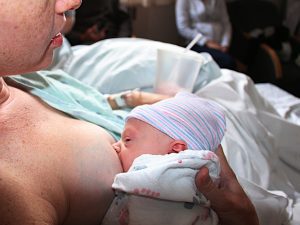
However, the World Health Organization states that the quality of breast milk can be affected by the health of the lactating mother during the postnatal period. This is why it is crucial for postpartum women to get a balanced diet and take postnatal food supplements.
Making sure the mother gets the right postnatal vitamin can ultimately determine whether the baby obtains enough nutrients to thrive. Hence, it is crucial to get enough prenatal vitamins for both themselves and their children. That could mean simply eating a healthy diet that’s rich in essential nutrients, omega 3 fatty acids (eicosapentaenoic acid), etc. from natural ingredients, or it could mean the nursing mother takes a postnatal supplement.
Without the proper nutrient stores and prenatal vitamin supplements, new mothers most often experience difficulties during this period that leave them feeling down in the dumps. These women experience hair loss, depressive symptoms, and the typical baby blues. To prevent extreme cases of these conditions, mothers are advised to follow proper dietary intake, iron intake, and prenatal supplement intake to support postpartum recovery.
For vegetarian women, there are plenty of vegetarian postnatal vitamins and minerals alternatives on the market. You can never go wrong with a postnatal drink mix like an organic pea protein shake, organic rice protein, organic flax seed, organic blueberry fruit, organic cranberry fruit, organic tomato fruit, organic raspberry fruit, organic chia seed, organic green blend, digestive enzyme blend, organic polyphenol blend, organic strawberry fruit, organic apple fruit, organic turmeric root, organic cherry fruit, organic broccoli stem, organic carrot root, organic spinach leaf, organic kale leaf, and organic sweet potato root. There is also a long list of excellent vegetarian postnatal supplements in your favorite whole foods store.
Continue reading if you’re interested to know more about the multivitamin for women out there.
A Quick Look At The Best Vitamins For Breastfeeding Moms
Needed Nutrients For Nursing
Now, it is always better to get all of your nutrients from a well-balanced diet. Essential nutrients may have synergistic effects, which means that they have stronger effects when taken together. Indeed, many nutrients found in food have higher bioavailability than those found in supplements, which means the human body can take them in and utilize them more readily. Foods also offer the nutrients in the correct levels of nutrients with regard to what your body needs per serving.
However, some mothers are unable to get a well-balanced diet. Maybe they do not have time to cook proper meals or even sit down and eat. Perhaps they have certain conditions or follow certain traditions that bar them from consuming certain types of food.
If so, then supplements containing the vitamin for breastfeeding mom can be helpful in maintaining the health of your child. Mother and baby need to have the postnatal supplements that will keep them healthy and can even help the nursing mother increase milk supply, in some cases.
A lack of milk production can be a point of stress in many nursing women, thus, finding a good nursing postnatal multivitamin may be able to help take some of that stress away because not all postnatal vitamins can do the enhancement.
Best Water-Soluble Postnatal Vitamins
Several nutrients, such as key vitamins B and C, are easily dissolved in water and are therefore not easily stored in fat tissue. As a result, these water-soluble nutrients need to be consumed every day to maintain appropriate levels in the body. Concentrations of these nutrients in breastmilk can vary, although the body can limit the amount of these nutrients to avoid overdosing on the baby. Hence, these underscore the need among lactating mothers to get the right vitamin for breastfeeding mom.
Many nursing mothers feel tiredness and fatigue when they are nursing a child. This can be a symptom of not getting the right levels of nutrient variations into their bodies. Just like prenatal supplements help with supporting the development of the fetus and what the mother will need for giving birth, postnatal supplement support the body of nursing mothers, giving them what they need to promote healthy milk production.
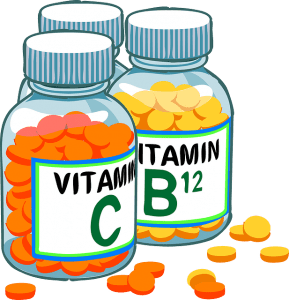
B Vitamins, which are the collective name of several nutrients, are vital to ensure proper metabolism. This includes Vitamin B1 (thiamin), B2 (riboflavin), B3 (niacin), b5 (pantothenic acid), b12 (cyanocobalamin), etc. Without enough of these nutrients, the body will struggle to obtain enough energy from any consumed food. Babies have a very active metabolism to support rapid growth. Since deficiencies of this nutrient can cause stunted growth and other serious complications, it’s extremely important that nursing women are getting enough vitamin B to pass on to their babies. The B group is certainly one of the essential nutrients all humans need to live healthy lives.
Meanwhile, vitamin C is essential to aid the production of collagen, a polymer that acts as a scaffold. Collagen is used to create connective tissue, which supports the different tissues of the body. Any deficiencies in collagen can cause problems with the skin, bones, and ligaments, especially during times of rapid growth. For babies, this nutrient is essential to ensure proper growth. A good postnatal supplement will certainly have vitamin C that can be passed on to the baby through the milk supply of a nursing mother.
Fat-Soluble Prenatal Vitamins
These nutrients are more soluble in fat than in water and include vitamins A, D, E, and K. The body can store these nutrients, but it cannot easily process excess amounts. Hence, these can accumulate and cause damage to the baby, so the mother should only consume the right amounts of these nutrients. Nevertheless, it is still essential for babies to receive these nutrients, which will only happen if their mothers get the right amount of nutrients.
Due to the importance of the levels of these nutrients, it’s critical that nursing mothers to get the recommended nursing postnatal multivitamin because they’re formulated based on the unique needs of lactating women who are feeding infants. Multivitamins that aren’t specifically formulated for nursing mothers will have different levels of nutrients that could pass on too much of them into the milk supply. That can be harmful to the baby.
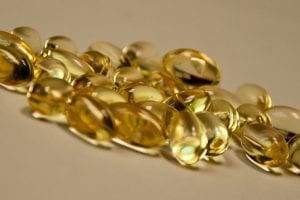
Vitamin A plays a role in preserving good vision, while optimal vitamin D levels help bones absorb more calcium. Vitamin E is an antioxidant that counters the toxic byproducts of metabolism. On the other hand, vitamin K helps maintain the blood clotting process that helps seal wounds.
Any deficiencies in this nutrient can cause severe disabilities later in life, so mothers are recommended to take the multivitamin when they cannot get enough of these nutrients from their diets. Nursing mothers, themselves, can easily become deficient in some nutrients because their bodies are working harder than normal during milk production.
Calcium And Other Best Minerals
Unlike vitamins, minerals usually have consistent levels in breast milk even during times of nutrient deficiency. In these times, the body of the mother takes nutrients from reserves to ensure that she nourishes the baby well. However, this can weaken the mother, ultimately jeopardizing both the mother and the child. Hence, the mineral supplements aid in the health of the mother as much as the child. The postnatal supplements will also provide nursing mothers with the minerals she needs to maintain their energy and their milk production.
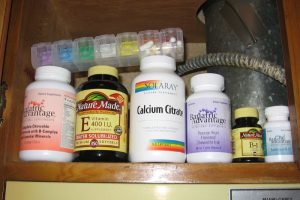
Perhaps the most crucial of these minerals is calcium. This mineral maintains the structural integrity of bones and proper nerve conduction and muscle contraction. There is also iron. This mineral helps in manufacturing the oxygen-carrying compound called hemoglobin. Also, zinc is essential for the immune system to function. Other essential minerals include copper, chromium, and potassium. Both prenatal multivitamins taken before giving birth and postnatal multivitamin taken after giving birth will have the levels of these minerals that are appropriate to each respective life stage.
Doctor Consultation
Getting the vitamins for breastfeeding mothers can sometimes have nuances. The nutritional needs of people can vary based on both genetics and the environment. An excess of nutrients can be just as damaging as a deficiency, so make sure to always consult a doctor first before intaking any multivitamin or mineral supplements. As long as you take supplements that complement your diet, you and your baby are receiving the optimum nutrition to support growth and ward off diseases. Always choose postnatal supplements made only of natural ingredients. Also, most postnatal food supplements should not be taken on an empty stomach. If you are a nursing mother, you can look for special variations of postnatal supplements that can help you increase milk production. Nursing postnatal vitamins for breastfeeding formulas will have slightly different levels of nutrients that aid in the production of breast milk.

Examples of Postnatal Supplements For Nursing Mothers
There are many manufacturers of vitamins made in the USA that produce postnatal supplements.
Let’s just take a look at a few of them.
Pink Stork
Pink Stork is a maker of all types of food supplements meant for women. The Pink Stork brand is known for its all-natural products, many of which are highly recommended by the American Pregnancy Associates Program. Pink Stork offers Total Postnatal Plus DHA (to promote brain development) capsules, which have been formulated for new mothers whose needs have changed after having a baby. Pink Stork offers many other products, such as Pink Stork Total Prenatal, Pink Stork Fertility Support, Pink Stork Collagen, and Pink Stork Total Apple Cider Vinegar.
New Chapter
New Chapter Postnatal multivitamins are called the Perfect Postnatal Multivitamins. These are organic postnatal supplements that have been formulated to support new mothers who are nursing. New Chapter postnatal supplements are all-natural and have been fermented with helps with their absorption of them.
Actif
Actif Organic Postnatal Vitamin is formulated with more than 25 different nutrients. It’s meant to help increase the milk production of nursing mothers and promote healthy brain development in the baby. Actif Organic is made in the U.S., is BPA-free, gluten-free, and certified non-GMO.
Frequently Asked Questions About Vitamins And Supplements For Breastfeeding
What Vitamins And Supplements Can Do For Nursing For Mothers?
Nursing mothers need extra amounts of magnesium, vitamin B6, calcium, zinc, vitamin E, folic acid, riboflavin (vitamin B2), phosphorus, and iron. Nursing mothers have unique needs, which is why there are specific nursing best postnatal vitamins you can buy.
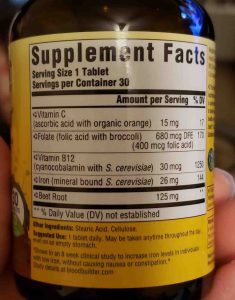
Are Prenatal And Postnatal Vitamins Okay While Nursing?
A daily multivitamin that contains 100 percent of the recommended dietary allowance (RDA) is approved for nursing mothers. You should look for multivitamins that are specially formulated for nursing mothers, though. It’s the easiest way to get the recommended nutrient levels which the American Pregnancy Association outlines for nursing mothers.
Are Supplements Needed When Nursing?
Every nursing and pregnant woman should consider taking a daily supplement that contains 10mcg of vitamin D. If a nursing mother isn’t getting enough of the nutrients she needs for herself and the baby from food, then she should be taking the supplement. Certain nutrients help to promote healthy bones, brain development, and growth for a baby. Nursing women may not have enough nutrients in reserve to be passed on to their babies, so a supplement helps them to do that.
How Much Vitamin D Should Be Taken For Nursing Mothers?
As per IOM recommendations, an adequate intake for nursing mothers is not 400 IU/d.
Is Vitamin C Bad For Infant Feeding?
Vitamin C is an antioxidant and is a standard component of human milk fed infant. Therefore, there’s no worry of any health concern for the breastfed infant. Nursing mothers need not worry about their babies getting vitamin C in their breast milk.
Do Postnatal Vitamin Supplements Help Milk Supply?
Some postnatal supplements are formulated to help promote lactation. On the other hand, other multivitamins supply vital nutrients and/or herbs to support immunity and energy for mothers. If you’re a nursing mother who is in need of an increase in her milk supply, look for a multivitamin that’s formulated to do that. Not all nursing mothers are after the same effect, so look for what’s right for your needs.
What Nutrients Are Absent In Human Milk?
Breast milk does not provide babies with enough vitamin D. That is the reason why supplementing with this nutrient is essential.
The American Pregnancy Association and top paediatricians also recommend a DHA babies supplement. DHA helps to promote healthy brain development. Nursing women can usually just give a small dropper of this supplement directly to a breastfed baby.
What Is The Best Form Of Vitamin D To Take?
Experts recommend vitamin D3 or cholecalciferol.
Are Vitamins E Safe?
Vitamin E is also one of the most important nutrients for breastfeeding women. It helps nursing mothers and their babies to have healthy skin development.
When Is The Best Time To Take For Vitamin E?
Take vitamin E in the middle of the day with food.
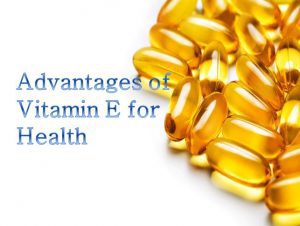
When Should I Start Taking Vitamins While Nursing?
What Kind Of Vitamins Can I Take While Nursing?
Can You Take All Supplements While Nursing?
What Happens If You Nurse And Don’t Take Vitamins?
How Can I Improve My Breast Milk Quality?
Last Updated on May 13, 2023 by Allen Laconsay
DISCLAIMER (IMPORTANT): This information (including all text, images, audio, or other formats on FamilyHype.com) is not intended to be a substitute for informed professional advice, diagnosis, endorsement or treatment. You should not take any action or avoid taking action without consulting a qualified professional. Always seek the advice of your physician or other qualified health provider with any questions about medical conditions. Do not disregard professional medical advice or delay seeking advice or treatment because of something you have read here a FamilyHype.com.
These are really great options.